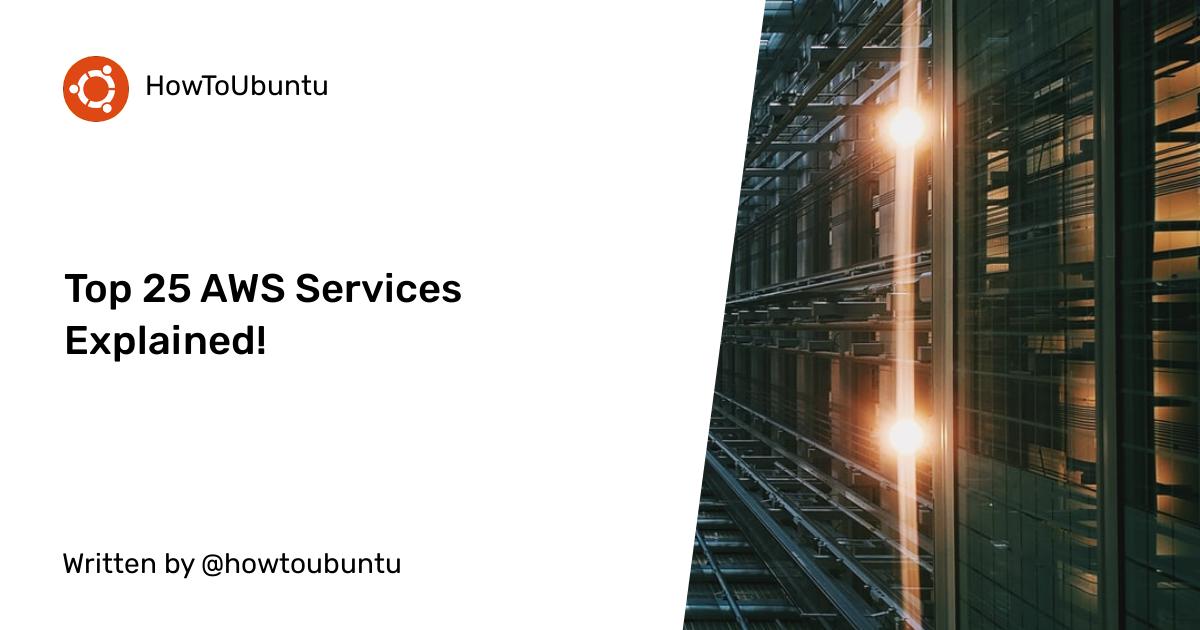1. Robomaker
 Robots are being used more widely in society for purposes that are increasing in sophistication such as complex assembly, picking and packing, last-mile delivery, environmental monitoring, search and rescue, and assisted surgery. Within the autonomous mobile robot (AMR) and autonomous ground vehicle (AGV) market segments, robots are being used for commercial logistics and consumer cleaning, delivery, and companionship.
Robots are being used more widely in society for purposes that are increasing in sophistication such as complex assembly, picking and packing, last-mile delivery, environmental monitoring, search and rescue, and assisted surgery. Within the autonomous mobile robot (AMR) and autonomous ground vehicle (AGV) market segments, robots are being used for commercial logistics and consumer cleaning, delivery, and companionship.
2. IOT Core
 AWS IoT Core lets you connect IoT devices to the AWS cloud without the need to provision or manage servers. AWS IoT Core can support billions of devices and trillions of messages, and can process and route those messages to AWS endpoints and to other devices reliably and securely. With AWS IoT Core, your applications can keep track of and communicate with all your devices, all the time, even when they aren’t connected.
AWS IoT Core lets you connect IoT devices to the AWS cloud without the need to provision or manage servers. AWS IoT Core can support billions of devices and trillions of messages, and can process and route those messages to AWS endpoints and to other devices reliably and securely. With AWS IoT Core, your applications can keep track of and communicate with all your devices, all the time, even when they aren’t connected.
3. Ground Station
 AWS Ground Station is a fully managed service that lets you control satellite communications, process data, and scale your operations without having to worry about building or managing your own ground station infrastructure. Satellites are used for a wide variety of use cases, including weather forecasting, surface imaging, communications, and video broadcasts. Ground stations form the core of global satellite networks.
AWS Ground Station is a fully managed service that lets you control satellite communications, process data, and scale your operations without having to worry about building or managing your own ground station infrastructure. Satellites are used for a wide variety of use cases, including weather forecasting, surface imaging, communications, and video broadcasts. Ground stations form the core of global satellite networks.
4. Bracket
 Amazon Braket is a fully managed quantum computing service designed to help speed up scientific research and software development for quantum computing.
Amazon Braket is a fully managed quantum computing service designed to help speed up scientific research and software development for quantum computing.
 Image from AWS
Image from AWS
Most developers that use AWS use it to solve more practical problems not like Quantum computing. So lets look what AWS has for Computing!
5. Elastic Compute Cloud (EC2)
 Amazon Elastic Compute Cloud (Amazon EC2) is a web service that provides secure, resizable compute capacity in the cloud. It is designed to make web-scale cloud computing easier for developers. Amazon EC2’s simple web service interface allows you to obtain and configure capacity with minimal friction.
Amazon Elastic Compute Cloud (Amazon EC2) is a web service that provides secure, resizable compute capacity in the cloud. It is designed to make web-scale cloud computing easier for developers. Amazon EC2’s simple web service interface allows you to obtain and configure capacity with minimal friction.
6. Load Balancer
 Elastic Load Balancing automatically distributes incoming application traffic across multiple targets, such as Amazon EC2 instances, containers, IP addresses, Lambda functions, and virtual appliances. It can handle the varying load of your application traffic in a single Availability Zone or across multiple Availability Zones.
Elastic Load Balancing automatically distributes incoming application traffic across multiple targets, such as Amazon EC2 instances, containers, IP addresses, Lambda functions, and virtual appliances. It can handle the varying load of your application traffic in a single Availability Zone or across multiple Availability Zones.
7. Cloud Watch
 Amazon CloudWatch is a monitoring and observability service built for DevOps engineers, developers, site reliability engineers (SREs), and IT managers.
Amazon CloudWatch is a monitoring and observability service built for DevOps engineers, developers, site reliability engineers (SREs), and IT managers.
8. Auto Scale
 AWS Auto Scaling monitors your applications and automatically adjusts capacity to maintain steady, predictable performance at the lowest possible cost. Using AWS Auto Scaling, it’s easy to setup application scaling for multiple resources across multiple services in minutes.
AWS Auto Scaling monitors your applications and automatically adjusts capacity to maintain steady, predictable performance at the lowest possible cost. Using AWS Auto Scaling, it’s easy to setup application scaling for multiple resources across multiple services in minutes.
9. Elastic Beanstalk
 AWS Elastic Beanstalk is an easy-to-use service for deploying and scaling web applications and services developed with Java, .NET, PHP, Node.js, Python, Ruby, Go, and Docker on familiar servers such as Apache, Nginx, Passenger, and IIS.
AWS Elastic Beanstalk is an easy-to-use service for deploying and scaling web applications and services developed with Java, .NET, PHP, Node.js, Python, Ruby, Go, and Docker on familiar servers such as Apache, Nginx, Passenger, and IIS.
10. Lightsail
 Lightsail is an easy-to-use virtual private server (VPS) provider that offers you everything needed to build an application or website for a cost-effective, monthly plan.
Lightsail is an easy-to-use virtual private server (VPS) provider that offers you everything needed to build an application or website for a cost-effective, monthly plan.
11. Lambda
 AWS Lambda is a serverless compute service that lets you run code without provisioning or managing servers, creating workload-aware cluster scaling logic, maintaining event integrations, or managing runtimes.
AWS Lambda is a serverless compute service that lets you run code without provisioning or managing servers, creating workload-aware cluster scaling logic, maintaining event integrations, or managing runtimes.
12. Serverless Repo
 The AWS Serverless Application Repository is a managed repository for serverless applications. It enables teams, organizations, and individual developers to store and share reusable applications, and easily assemble and deploy serverless architectures in powerful new ways.
The AWS Serverless Application Repository is a managed repository for serverless applications. It enables teams, organizations, and individual developers to store and share reusable applications, and easily assemble and deploy serverless architectures in powerful new ways.
13. Outpost
 AWS Outposts is a fully managed service that offers the same AWS infrastructure, AWS services, APIs, and tools to virtually any datacenter, co-location space, or on-premises facility for a truly consistent hybrid experience.
AWS Outposts is a fully managed service that offers the same AWS infrastructure, AWS services, APIs, and tools to virtually any datacenter, co-location space, or on-premises facility for a truly consistent hybrid experience.
14. Snow
 Applications are moving to the cloud faster today than ever before. A new category of applications requires increased capabilities and performance at the edge of the cloud, or even beyond the edge of the network.
Applications are moving to the cloud faster today than ever before. A new category of applications requires increased capabilities and performance at the edge of the cloud, or even beyond the edge of the network.
15. Container Registry
 Amazon Elastic Container Registry (Amazon ECR) is a fully managed container registry that makes it easy to store, manage, share, and deploy your container images and artifacts anywhere. Amazon ECR eliminates the need to operate your own container repositories or worry about scaling the underlying infrastructure.
Amazon Elastic Container Registry (Amazon ECR) is a fully managed container registry that makes it easy to store, manage, share, and deploy your container images and artifacts anywhere. Amazon ECR eliminates the need to operate your own container repositories or worry about scaling the underlying infrastructure.
16. Container Service
 Amazon Elastic Container Service (Amazon ECS) is a fully managed container orchestration service that helps you easily deploy, manage, and scale containerized applications.
Amazon Elastic Container Service (Amazon ECS) is a fully managed container orchestration service that helps you easily deploy, manage, and scale containerized applications.
17. Kubernetes Service
 Kubernetes is open source software that allows you to deploy and manage containerized applications at scale. Kubernetes manages clusters of Amazon EC2 compute instances and runs containers on those instances with processes for deployment, maintenance, and scaling. Using Kubernetes.
Kubernetes is open source software that allows you to deploy and manage containerized applications at scale. Kubernetes manages clusters of Amazon EC2 compute instances and runs containers on those instances with processes for deployment, maintenance, and scaling. Using Kubernetes.
18. Fargate
 AWS Fargate is a serverless, pay-as-you-go compute engine that lets you focus on building applications without managing servers. AWS Fargate is compatible with both Amazon Elastic Container Service (ECS) and Amazon Elastic Kubernetes Service (EKS).
AWS Fargate is a serverless, pay-as-you-go compute engine that lets you focus on building applications without managing servers. AWS Fargate is compatible with both Amazon Elastic Container Service (ECS) and Amazon Elastic Kubernetes Service (EKS).
19. App Runner
 AWS App Runner is a fully managed service that makes it easy for developers to quickly deploy containerized web applications and APIs, at scale and with no prior infrastructure experience required.
AWS App Runner is a fully managed service that makes it easy for developers to quickly deploy containerized web applications and APIs, at scale and with no prior infrastructure experience required.
Lets just say you need to store some data in the cloud. Lets move onto some File Storage Services!
20. Simple Storage Service (S3)
 Amazon Simple Storage Service (Amazon S3) is an object storage service that offers industry-leading scalability, data availability, security, and performance. This means customers of all sizes and industries can use it to store and protect any amount of data for a range of use cases.
Amazon Simple Storage Service (Amazon S3) is an object storage service that offers industry-leading scalability, data availability, security, and performance. This means customers of all sizes and industries can use it to store and protect any amount of data for a range of use cases.
21. Glacier
 Amazon S3 Glacier and S3 Glacier Deep Archive are secure, durable, and extremely low-cost Amazon S3 cloud storage classes for data archiving and long-term backup. They are designed to deliver 99.999999999% durability, and provide comprehensive security and compliance capabilities that can help meet even the most stringent regulatory requirements. Customers can store data for as little as $1 per terabyte per month!
Amazon S3 Glacier and S3 Glacier Deep Archive are secure, durable, and extremely low-cost Amazon S3 cloud storage classes for data archiving and long-term backup. They are designed to deliver 99.999999999% durability, and provide comprehensive security and compliance capabilities that can help meet even the most stringent regulatory requirements. Customers can store data for as little as $1 per terabyte per month!
22. Block Storage
 Amazon Elastic Block Store (EBS) is an easy-to-use, scalable, high-performance block-storage service designed for Amazon Elastic Compute Cloud (EC2).
Amazon Elastic Block Store (EBS) is an easy-to-use, scalable, high-performance block-storage service designed for Amazon Elastic Compute Cloud (EC2).
23. Elastic File System
 Amazon Elastic File System (EFS) automatically grows and shrinks as you add and remove files with no need for management or provisioning.
Amazon Elastic File System (EFS) automatically grows and shrinks as you add and remove files with no need for management or provisioning.
Maybe you want some type of a database service? The last 2 will be AWS Database Services!
24. SimpleDB
 This is also AWS very first Database service! Amazon SimpleDB is a highly available NoSQL data store that offloads the work of database administration. Developers simply store and query data items via web services requests and Amazon SimpleDB does the rest.
This is also AWS very first Database service! Amazon SimpleDB is a highly available NoSQL data store that offloads the work of database administration. Developers simply store and query data items via web services requests and Amazon SimpleDB does the rest.
25. Dynamo DB
 Amazon DynamoDB is a key-value and document database that delivers single-digit millisecond performance at any scale. It's a fully managed, multi-region, multi-active, durable database with built-in security, backup and restore, and in-memory caching for internet-scale applications. DynamoDB can handle more than 10 trillion requests per day and can support peaks of more than 20 million requests per second!
Amazon DynamoDB is a key-value and document database that delivers single-digit millisecond performance at any scale. It's a fully managed, multi-region, multi-active, durable database with built-in security, backup and restore, and in-memory caching for internet-scale applications. DynamoDB can handle more than 10 trillion requests per day and can support peaks of more than 20 million requests per second!
Thats basicly it! If you want me to do another type of this series but just on Azure or Google Cloud, just tell me!
Also check out my website!
